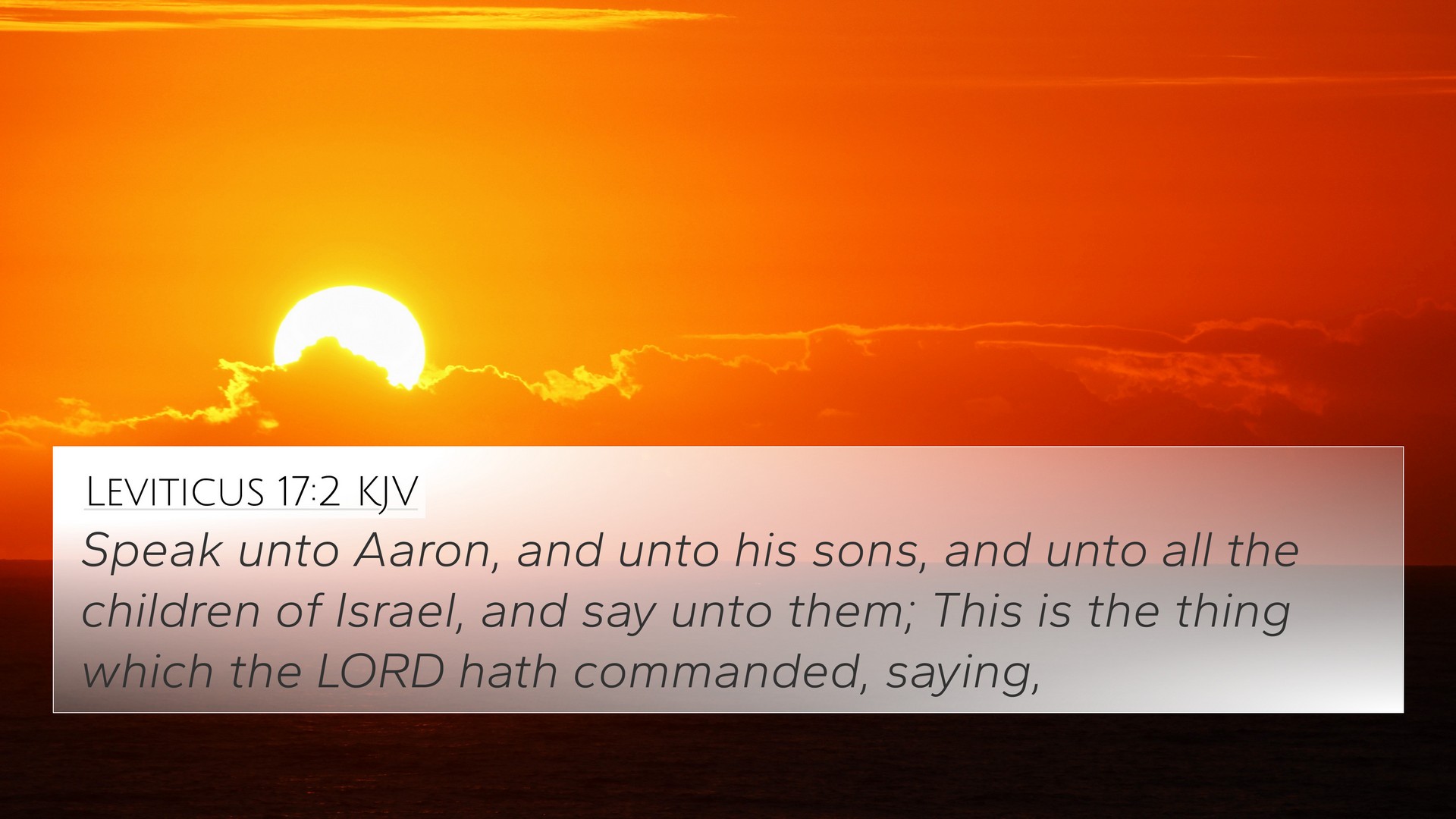Understanding Leviticus 17:2
Leviticus 17:2 states: "Speak unto Aaron, and unto his sons, and unto all the children of Israel, and say unto them, This is the thing which the Lord hath commanded, saying,
This verse is an introduction to the laws concerning sacrifices and how they should be conducted by the priests and the people of Israel. It emphasizes the importance of divine commandments and the role of priests in guiding the people in their ritual practices.
Summary of Key Insights
In the commentaries from notable theologians, critical themes emerge regarding Leviticus 17:2:
-
Authority of God: The command begins with a call to listen, which establishes the authority of God in giving the laws. As Albert Barnes notes, it is essential for the people to understand that these ordinances come directly from the Lord.
-
Role of the Priesthood: Matthew Henry explains that Aaron and his sons (the priests) are to be the mediators between God and the people, reflecting the establishment of a priestly order responsible for upholding the commandments of God.
-
Community Instruction: Adam Clarke remarks on the importance of the entire community learning and understanding the statutes, suggesting that obedience is a collective responsibility.
Bible Cross-References
This verse connects closely with several other scriptures, emphasizing the thematic ties in biblical teachings. Some important cross-references include:
- Exodus 12:3-11: Instructions for the Passover lamb, highlighting the significance of sacrifice.
- Leviticus 1:1-5: The offering of sacrifices is defined, establishing procedures for acceptable worship.
- Hebrews 9:22: The necessity of blood for atonement, relating to the sacrificial system’s importance in both Testaments.
- Numbers 18:1-7: Further instruction on the duties of the priesthood and their role in sacrifices.
- Deuteronomy 12:5-7: Calls for centralized worship, aligning with the concept of obedience to God's instructions.
- 1 Peter 2:9: Describes believers as a royal priesthood, connecting the Levitical priesthood’s significance to New Testament faith.
- Romans 12:1: Encourages believers to present their lives as a living sacrifice, relating the Old Testament laws to Christian practice.
Connecting Biblical Themes
The thematic connections between Leviticus 17:2 and other verses demonstrate how the sacrificial system in the Old Testament lays foundational principles for understanding New Testament teachings. The careful preparation and execution of sacrifice reflect God's holiness, which ultimately leads to the understanding of Christ being the perfect sacrifice.
Application in Bible Study
When studying scripture, leveraging tools for Bible cross-referencing can provide deeper insights:
- Utilize a Bible concordance to identify terms and themes that recur throughout the Text.
- Employ Bible cross-reference guides to discover links between New and Old Testament scriptures.
- Engage in cross-reference Bible study methods for understanding how different authors address similar themes.
Conclusion
Leviticus 17:2 not only directs the people of Israel in their sacrificial practices but also establishes a framework through which one can understand the divine seriousness surrounding worship and sacrifice. By cross-referencing related verses, readers can better appreciate the continuity and depth of biblical teachings while understanding the significance of Jesus Christ's ultimate sacrifice.


